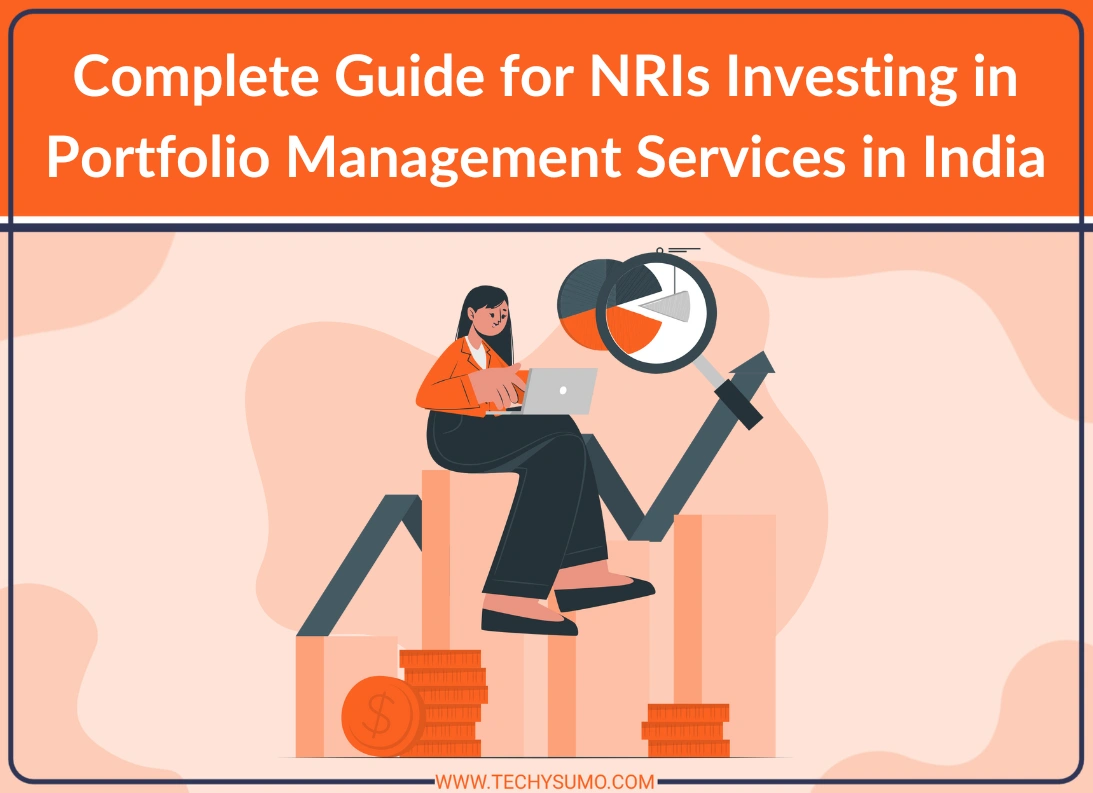Many Non-Resident Indians (NRIs) are keen to invest in India, but the biggest question is always where to start? Fixed deposits and real estate have traditionally been favourites, yet they often lack diversification and growth potential.
That’s where Portfolio Management Services (PMS) come in — offering customised, professionally managed portfolios, often through top ranked wealth management firms. With India’s equity and bond markets becoming increasingly sophisticated, PMS is now an attractive avenue for NRIs who want a balance of personalisation, transparency, and potential for superior returns, managed by experts from the industry’s leading names.
In this guide, we’ll walk you through everything NRIs need to know about investing in PMS in India — from evaluating top-ranked wealth management firms and understanding eligibility, to navigating regulations, types of strategies, taxation, and future opportunities.
Table of Contents
- What Are Portfolio Management Services (PMS)?
- Why Should NRIs Consider PMS?
- Regulatory Framework for NRIs in PMS
- Taxation for NRIs in PMS
- PMS vs Mutual Funds: Which Works Better for NRIs?
- Role of Bonds in PMS Portfolios for NRIs
- How to Start PMS Investment as an NRI
- Recent Trends in PMS Relevant to NRIs
- Key Considerations Before Investing
- Conclusion
- Frequently Asked Questions
What Are Portfolio Management Services (PMS)?
PMS is a professional service offered by SEBI-registered portfolio managers. Unlike mutual funds that pool money from multiple investors, PMS provides tailored portfolios based on an investor’s goals, risk appetite, and investment horizon.
Think of mutual funds as a buffet and PMS as a personal chef. In PMS, you own the securities directly — whether equity shares, bonds, or alternative assets — with active management designed to optimise returns.
Also Read
Types of PMS
- Discretionary PMS – The portfolio manager makes all buy/sell decisions.
- Non-Discretionary PMS – The manager suggests trades, but the final call rests with you.
- Advisory PMS – You receive advice, but execution is your responsibility.
Why Should NRIs Consider PMS?
1. Customisation and Control
NRIs often have diverse global investments. PMS in India lets them tailor exposure to Indian equities, bonds, and alternative strategies while maintaining flexibility.
2. Transparency
Unlike pooled funds, NRIs can track individual securities in their portfolio. Digital dashboards make monitoring easy from anywhere in the world.
3. Diversification Beyond Real Estate
Many NRIs hold significant property assets in India. PMS helps balance this with equities, debt instruments, and even bonds, reducing concentration risk.
4. Professional Management
Managers rely on real-time market data, regulatory compliance, and disciplined research — something that’s difficult for NRIs to manage remotely.
Regulatory Framework for NRIs in PMS
NRIs can invest in PMS under the Foreign Exchange Management Act (FEMA) guidelines. Here’s what you need to know:
| Criteria | Requirement |
| Minimum Investment | ₹50 lakh (as per SEBI norms) |
| Accounts Needed | Portfolio Investment Scheme (PIS) account, NRE/NRO bank account, Demat account |
| Eligible Instruments | Equity shares, bonds, debentures, ETFs, derivatives |
| Repatriation Rules | Investments can be made on repatriable (NRE) or non-repatriable (NRO) basis |
| SEBI Oversight | Strict rules on disclosure, reporting, and fee structures |
Taxation for NRIs in PMS
- Capital Gains:
- Short-term (STCG): 15% on equities held <12 months.
- Long-term (LTCG): 10% beyond ₹1 lakh in a financial year.
- Debt & Bonds:
- STCG: Taxed at slab rate.
- LTCG: 20% with indexation benefit.
- TDS (Tax Deducted at Source): PMS providers deduct TDS before crediting returns.
- Double Tax Avoidance Agreement (DTAA): NRIs can claim benefits depending on their country of residence.
💡 Tip: Always consult a tax advisor to structure investments optimally.
PMS vs Mutual Funds: Which Works Better for NRIs?
| Feature | PMS | Mutual Funds |
| Minimum Investment | ₹50 lakh | ₹500–₹1,000 |
| Ownership | Direct ownership of securities | Units in a pooled portfolio |
| Customisation | High | Low |
| Reporting | Detailed, regular updates | Standardised reports |
| Control | More personalised | More passive |
For NRIs with significant wealth and a long-term India allocation, PMS often proves more effective than mutual funds.
Role of Bonds in PMS Portfolios for NRIs
Bonds form an important part of PMS strategies, especially for NRIs seeking stable income. Portfolio managers use:
- Government Securities (G-Secs) – Low-risk, sovereign-backed.
- Corporate Bonds – Higher yield but varying risk.
- Tax-Free Bonds – Issued by PSUs, ideal for predictable tax-efficient income.
By combining equities with bonds, PMS ensures a balanced risk-return profile.
How to Start PMS Investment as an NRI
- Choose a SEBI-Registered PMS Provider – Look for performance history, strategy fit, and transparency.
- Set Up Required Accounts – NRE/NRO account, Demat account, and PIS approval from RBI-authorised banks.
- Define Your Investment Goals – Growth, income, or wealth preservation.
- Select PMS Strategy – Equity-focused, debt-heavy, or hybrid.
- Monitor Performance – Use online dashboards and regular portfolio statements.
Recent Trends in PMS Relevant to NRIs
- Digital Access: Investors can now monitor portfolios real-time from abroad.
- Growing AUM: PMS industry AUM touched ₹32.1 lakh crore in Jan 2024, up sharply from ₹7.3 lakh crore in 2014.
- Shift to Bonds and Alternatives: Many PMS providers are integrating bonds and structured debt strategies to attract NRIs seeking lower volatility.
- Lower Fees, Better Reporting: Competition is pushing firms to offer performance-linked fees and transparent cost breakdowns.
Key Considerations Before Investing
- Check regulatory compliance of the PMS provider.
- Understand fee structures – fixed vs performance-based.
- Clarify exit loads and lock-in periods.
- Ensure portfolio reporting is accessible internationally.
- Align PMS investments with your global asset allocation.
Conclusion
For NRIs, India offers a unique mix of growth potential and evolving financial markets. Portfolio Management Services provide a structured way to participate, combining equities, bonds, and other instruments into a strategy aligned with your goals.
If you’re an NRI looking to diversify beyond real estate and fixed deposits, PMS could be the key to a balanced, well-managed India allocation.
Frequently Asked Questions
Q1. Can NRIs invest in PMS in India?
Yes, under FEMA guidelines, NRIs can invest via NRE/NRO accounts, with the minimum requirement of ₹50 lakh.
Q2. Do NRIs need a Demat account for PMS?
Yes, since PMS involves direct ownership of securities, a Demat account is mandatory.
Q3. Are bonds part of PMS portfolios for NRIs?
Absolutely. PMS managers often integrate government and corporate bonds to reduce volatility and generate steady returns.
Q4. How is PMS taxed for NRIs?
Returns are subject to capital gains tax in India, with TDS deducted at source. DTAA benefits may help reduce double taxation.Q5. Is PMS better than mutual funds for NRIs?
If you have over ₹50 lakh to invest and want personalised strategies, PMS may be more effective than mutual funds. For smaller amounts, mutual funds remain suitable.






